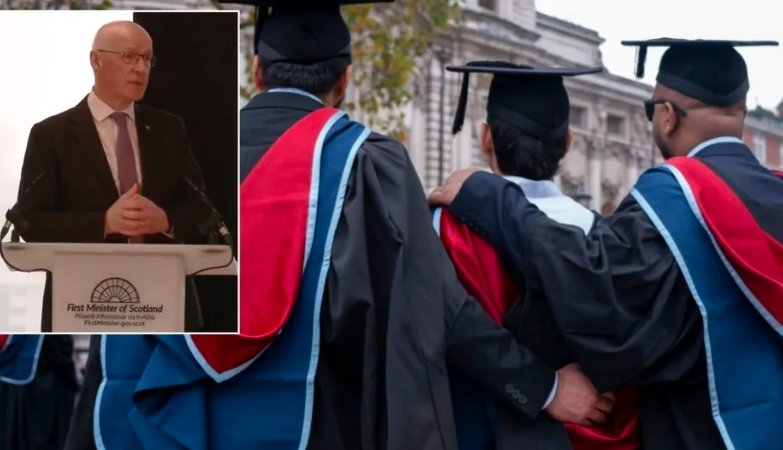A Tailored Visa to Address Skills and Population Challenges
Scotland’s First Minister, John Swinney, has unveiled a bold proposal for a dedicated visa to retain skilled international graduates in the country. Dubbed the Scottish Graduate Visa, the initiative aims to tackle Scotland’s population challenges, bolster its economy, and address critical skills shortages.
The visa would provide international students who complete their studies in Scotland with an additional two years to live and work in the country. Acting as a bridge between existing post-study and work visas, the scheme would give graduates more time to gain professional experience required to transition into the UK’s Skilled Worker Visa program.
The plan, however, hinges on cooperation from the UK Government, as migration remains a reserved matter under UK law.

Details of the Proposal
Under the Scottish Government’s plan, the Scottish Graduate Visa would:
- Be linked to a Scottish tax code, ensuring recipients live and work in Scotland.
- Grant international graduates a visa for up to two years after their studies.
- Help graduates meet the salary thresholds and requirements for a Skilled Worker Visa.
Speaking at JP Morgan Chase & Co in Glasgow, Swinney described the initiative as a “pragmatic approach” to migration. He emphasized its potential to attract and retain international talent, contributing to Scotland’s economy and society.
“The tailored visa route I propose will not only enhance Scotland’s reputation as an attractive destination for international students but also help address pressing skills shortages,” said Swinney. “It will drive innovation, increase productivity, and support economic growth.”
A Look Back: Fresh Talent Scheme
The proposed Scottish Graduate Visa is reminiscent of the Fresh Talent: Working in Scotland scheme, introduced in 2005. That program allowed international students to remain in Scotland for two years after graduation.
However, the Fresh Talent scheme was replaced in 2008 by a UK-wide post-study work route, which was later scrapped in 2012. Since then, post-study visa options have become more restrictive, creating challenges for international graduates looking to stay in the UK.
Swinney argued that a Scotland-specific visa would address these gaps and build on the country’s track record of attracting international students.
Economic Impact of International Students
Scotland’s higher education sector stands to benefit significantly from the proposed visa. According to Swinney, international students contribute £4.75 billion annually to the Scottish economy. Retaining graduates could further strengthen this impact by driving entrepreneurship, innovation, and workforce development.
“International students are an integral part of our society,” Swinney added. “Their presence enriches our culture, boosts private investment, and fosters economic growth.”
Brexit, Skills Gaps, and Migration Debates
Swinney also linked the need for the visa to broader issues stemming from Brexit. Scotland, which voted overwhelmingly to remain in the EU, has faced challenges in attracting and retaining talent due to new immigration restrictions.
“The disastrous Brexit vote has created a need for policies that rebuild ties with Europe and support skilled migration,” Swinney said. “We owe it to the young people who have settled here to create opportunities for them to stay and contribute.”
The proposal comes at a time when the UK Government is under pressure to refine its immigration policies. In October, the Labour Government announced plans to simplify visa routes for migrants with skills in artificial intelligence and life sciences. While these policies have been welcomed by the tech sector, they have reignited debates about migration caps and the broader visa system.
At the World Economic Forum in Davos, Chancellor Rachel Reeves announced that the UK Government would publish an immigration white paper, including a review of visas for high-skilled workers. The proposed Scottish Graduate Visa will likely be a focal point in discussions about regional and sector-specific migration routes.
Crossroads for Collaboration
Delivering the Scottish Graduate Visa will require collaboration between Holyrood and Westminster. Swinney has called on the UK Government to engage constructively, warning against dismissing the proposal without proper consideration.
“We need a joined-up approach to migration that recognizes Scotland’s unique demographic and economic challenges,” he said. “The Scottish Graduate Visa is a step in the right direction.”
Whether Westminster will support the plan remains uncertain, but its potential impact on Scotland’s economy and higher education sector has placed it firmly in the spotlight.


















